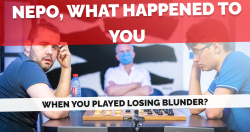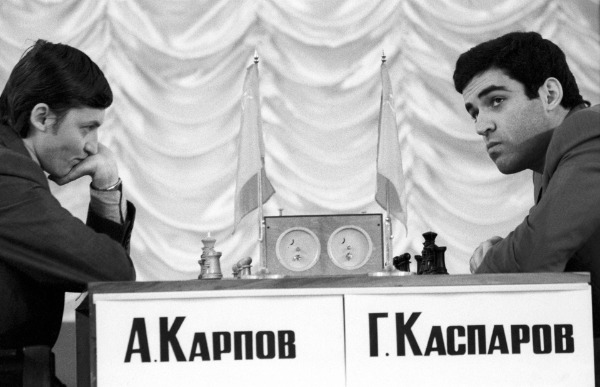
The Greatest Blunders in Chess History
27.01.2024 22:09 | HistoryChess, known for its intricate strategies and deep thinking, has seen its share of dramatic moments where even the best players have made glaring mistakes.
These blunders, often occurring under pressure or due to a lapse in concentration, have gone down in history for their impact on the game and the lessons they offer. Here, we explore some of the most famous blunders in chess history.
Bobby Fischer vs. Boris Spassky, 1972, World Championship Game 1:
.jpg)
In the highly anticipated World Championship match, Fischer played an inexplicable move 29...Bxh2, leading to a loss of his bishop. This move is considered one of the most shocking blunders in a World Championship match. Fischer's loss in this game was a dramatic start to what would become a legendary series of games in the Cold War-era chess battle.
Anatoly Karpov vs. Garry Kasparov, 1987, World Championship Game 24:

Karpov, just a draw away from retaining his title, missed a simple combination that would have led to a perpetual check. Instead, he played 40...Qa3, allowing Kasparov to gain momentum and eventually win the championship. This blunder is remembered for its high stakes and the way it dramatically shifted the championship's outcome.
Saemisch x Capablanca
Friedrich Saemisch was indeed a prominent German chess player in the 1920s, known for his contribution to the opening theory, particularly against the King's Indian Defense. His system in this opening is still widely used and bears his name.
Regarding the anecdote about José Raul Capablanca, it's a part of chess folklore rather than a verified historical fact. Capablanca, a Cuban chess grandmaster and former World Chess Champion, is renowned for his exceptional skills and contributions to chess. However, stories about his personal life, such as being a "womanizer," are more speculative and anecdotal. The tale of Capablanca making a significant blunder due to a personal distraction involving his wife and lover is an interesting story but lacks concrete evidence. It's an example of how legends and personal stories often become intertwined with the history of famous individuals, especially in a sport as storied as chess.
.jpg)
Christiansen x Karpov
Larry Christiansen is a strong American grandmaster, winner of numerous international tournaments. He is one of the few grandmasters that achieved the title directly, without becoming an international master before. He won the American Championship 3 times and played in several Olympiads.
Anatoly Karpov is one of the best chess players of all time. He is known to pay close attention to the resources of the opponent and to have a special talent to put the pieces in the best squares. It seems that this day Karpov’s talents had magically disappeared, as it is difficult to explain the move he made at the diagram position. This game is a unique case of a World Champion being defeated in only 12 moves.
Firouzja - Nepomniachtchi | Tata Steel masters 2024
In the penultimate round of the Tata Steel Masters 2024, Russian grandmaster Ian Nepomniachtchi, playing with black pieces, was defeated by French representative Alireza Firouzja. The game concluded with Firouzja's victory on the 28th move. This defeat marked Nepomniachtchi's third in the tournament, along with three wins and six draws. Consequently, Nepomniachtchi ranked eighth with 6 points, losing his chance to win the competition.
In the journey of mastering chess, blunders are inevitable. They're not just missteps; they are valuable lessons wrapped in disguise. Every chess player, from beginners to grandmasters, experiences blunders. What matters most is how you respond to them.
Firstly, understand that blunders are part of the learning process. They pinpoint areas needing improvement, serving as a beacon for focused practice. Analyzing your blunders helps in recognizing patterns and avoiding similar mistakes in the future.
Secondly, detach your self-worth from the game's outcome. A blunder doesn't define your skill or intelligence. It's simply a momentary lapse in a game filled with infinite possibilities.
Lastly, maintain a positive mindset. View each game as an opportunity to learn something new, rather than a battle for perfection. Embrace blunders with curiosity and use them as stepping stones towards becoming a better chess player.
Remember, in chess, as in life, perfection is unattainable. It's the pursuit of improvement and the lessons learned from mistakes that truly enrich your experience and skill.
PK
